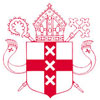Letter to the faithful of the diocese of Haarlem-Amsterdam
|
To the faithful of the diocese of Haarlem-Amsterdam, Brothers and Sisters, The Obdam case last week caused a lot of turmoil. To my surprise it generated a complete media hype. It is your right to hear from me a personal word about this. The parish allowed the international press agency Associated Press to record the socalled “Oranjemis” on Sunday, July 11 in the parish church of Obdam. The images of this event led to big fuss, both in our country and abroad. My disciplinary reaction raised heavy protests, but also adhesion. All emotions make it for many incomprehensible what is going on, whence this letter. The temporary suspension that I inflicted on Fr. Vlaar (he was not laicized, as rumor goes here and there) , of course led to actions of solidarity of parishioners. I fully understand that. People spontaneously take the part of their pastor, whom they know as being an assiduous priest whose heart is in his congregation. That’s how I too know him. In the news release about his suspension we therefore wrote that the appreciation of his pastoral zeal and commitment is not up for debate. But this is not what it is about. Here, the sanctity, the holiness of the Eucharist is at stake. Earlier I already warned the parish priest not to mingle the Celebration of Holy Eucharist with things profane and he promised so. Of course, I can imagine that a parish uses the “Orange feeling” to live, also in the own community, the togetherness. An event in the parvis (church yard) or the parish house is fine. An orange banner in the church too. To allude in homily or common prayer to actuality no less. Myself I used several times (sports)events (e.g. a cycle race, a motor car race, a regatta) as a platform to propagate the Good News. But to subordinate the Eucharistic celebration to football/soccer is going too far and constitutes a profanation of what is sacred to the Church. For it is not only about an orange chasuble. In Obdam there was also a goal on the presbytery .The Holy Mass began with a referee’s whistle and a kickoff. The confession of guilt was about a referee and the Gospel had been replaced by an ode to the orange feeling. Some of the central texts had been rewritten in football jargon and during the spending of Holy Communion profane songs were being sung. Thus God, instead of being the Centre, becomes a side issue, and that may never be the intention. The priest himself realizes too that he perhaps had himself led too much by the human regard. Frankly speaking I was very surprised and disappointed that the faithful do not spontaneously apprehend/understand that this goes way too far. I think we are dealing here with a broader phenomenon, that exceeds Obdam. It may sound harsh, but to me it shows how much the awareness of God’s Presence in the Eucharist, and so the reverence of what is Holy, in our Dutch Church has weakened. We seem not to exceed categories of “cosiness” and “fun”. Our Church is in a twofold crisis. A moral crisis, of which the child abuse in the past weighs most heavily, and of which we sincerely try to clean ourselves. In this field strong measures have already been taken. But there is also the question of a crisis of faith,that confuses the sight of the essential truths of faith. The real Presence of the risen Lord in his whole divine Majesty in the Holy Eucharist and Communion is one of these. Every liturgy must be directed towards the adoration of Him and the union with Him, and through Him also with one another. From this we draw strength and life. I think that in this matter we can take an example by others. In every orthodox and oriental Church the reverence for this lofty Mystery is absolutely unassailable and any profanation out of the question. But in every non-Christian religion we see the same. In Judaism, Islam, Buddhism and other oriental religions any mingling of sacred rites with profane rituals, texts and music would be unthinkable. They all turn to the place that is sacred to them or bow to the ground when they direct themselves to God. And we, who are most profoundly aware of God’s presence among us, a God incarnated, who leaves us his Body and Blood in bread and wine, we so often forget to give Him the honor that is due to Him. As a Bishop I bear also responsibility to see to it that liturgy is being celebrated according to the norms and the texts of the World Church, and to take measures whenever this is not the case. One can find this outdated, but such are the “rules of the game” which we as World Church handle and within which there is sufficient room for connecting Church and society. It is my hope that the case Obdam will bring us an occasion of reflecting again. The honor to God in the highest and the peace on earth among people belong together, as does the love of God and the neighbor. May it be given to us to further grow into this. July 19, 2010 + Joseph M. Punt, |









